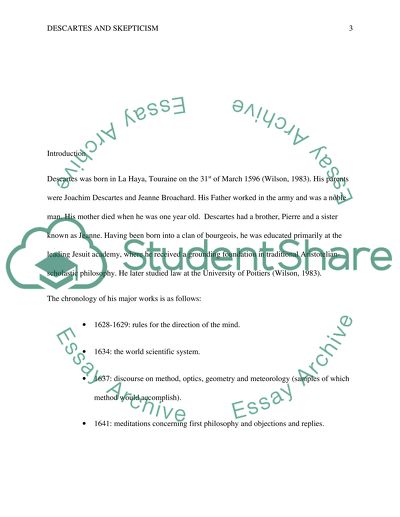Cite this document
(“Descartes and skepticism Essay Example | Topics and Well Written Essays - 1750 words”, n.d.)
Retrieved from https://studentshare.org/philosophy/1479288-descartes-and-skepticism
Retrieved from https://studentshare.org/philosophy/1479288-descartes-and-skepticism
(Descartes and Skepticism Essay Example | Topics and Well Written Essays - 1750 Words)
https://studentshare.org/philosophy/1479288-descartes-and-skepticism.
https://studentshare.org/philosophy/1479288-descartes-and-skepticism.
“Descartes and Skepticism Essay Example | Topics and Well Written Essays - 1750 Words”, n.d. https://studentshare.org/philosophy/1479288-descartes-and-skepticism.


